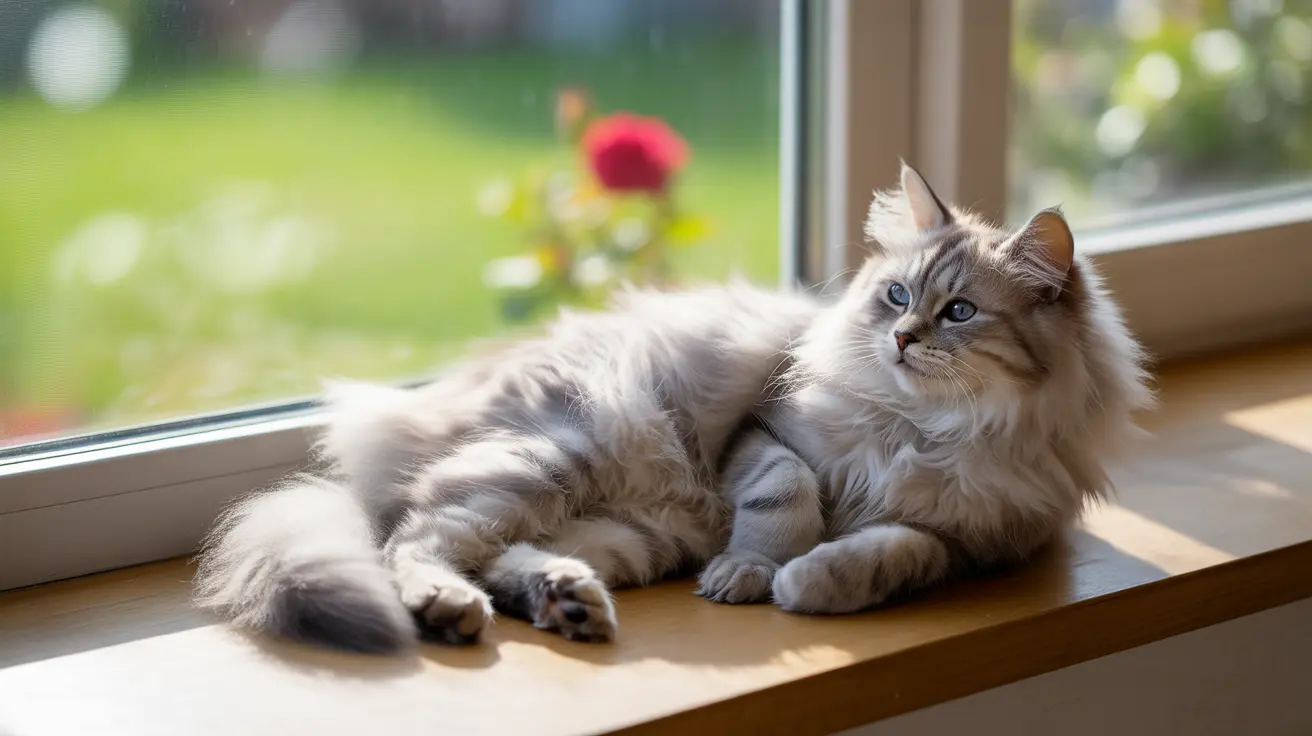If you've ever wondered "why is my cat's nose dry," you're not alone. While many pet owners believe a wet nose always indicates good health, the reality is more nuanced. A cat's nose naturally fluctuates between wet and dry throughout the day, and various factors can influence its moisture level.
In this comprehensive guide, we'll explore the common causes of a dry cat nose, when it might signal a health concern, and what steps you should take to ensure your feline friend stays healthy and comfortable.
Normal Causes of a Dry Cat Nose
Many perfectly natural circumstances can lead to a dry nose in cats:
Environmental Factors
Spending time near heat sources like sunny windowsills, radiators, or air vents can temporarily dry out your cat's nose. Indoor heating during winter months and air conditioning in summer can also reduce ambient humidity, affecting your cat's nasal moisture.
Natural Behaviors
Regular grooming habits, including licking their nose, can temporarily remove moisture. Additionally, cats often have drier noses while sleeping or resting, which is completely normal.
When to Be Concerned About Your Cat's Dry Nose
Warning Signs to Watch For
While a dry nose alone isn't usually cause for concern, certain accompanying symptoms warrant attention:
- Crusting or scaling around the nose
- Unusual discharge or bleeding
- Changes in nose color or texture
- Excessive pawing at the face
- Difficulty breathing or noisy breathing
Medical Conditions That Can Cause Dry Nose
Several health issues may lead to persistent nasal dryness:
- Dehydration
- Upper respiratory infections
- Allergies
- Autoimmune conditions
- Sunburn (especially in light-colored cats)
- Hyperkeratosis
Prevention and Home Care
There are several ways to help maintain your cat's nasal health:
- Ensure constant access to fresh water
- Use a humidifier in dry environments
- Protect light-colored cats from excessive sun exposure
- Maintain regular veterinary check-ups
- Keep your home free from irritating chemicals and excessive dust
When to Seek Veterinary Care
Contact your veterinarian if your cat's dry nose is accompanied by:
- Loss of appetite or decreased water intake
- Lethargy or behavior changes
- Persistent sneezing or coughing
- Visible sores or lesions on the nose
- Any unusual discharge
Frequently Asked Questions
Why is my cat's nose dry but they seem otherwise healthy?
A dry nose alone isn't usually cause for concern. Cats' noses naturally fluctuate between wet and dry throughout the day, especially during sleep or after grooming. If your cat is acting normal and showing no other symptoms, the dry nose is likely nothing to worry about.
When should I worry about my cat's dry nose and see a veterinarian?
Seek veterinary care if the dry nose is accompanied by other symptoms such as lethargy, loss of appetite, difficulty breathing, unusual discharge, or changes in the nose's appearance. Also consult a vet if the dryness persists for an extended period.
How can environmental factors like heating or sun exposure cause a cat's nose to dry out?
Indoor heating, air conditioning, and low humidity can remove moisture from the air and your cat's nasal tissue. Direct sun exposure can cause sunburn and dryness, especially in cats with light-colored or pink noses.
What medical conditions can cause a cat's nose to be dry, crusty, or discolored?
Several medical conditions can affect nasal health, including dehydration, upper respiratory infections, allergies, autoimmune disorders, and hyperkeratosis. Some conditions may cause additional symptoms like crusting, discoloration, or discharge.
How can I help keep my cat's nose moist and comfortable at home?
Maintain proper humidity levels using a humidifier, ensure constant access to fresh water, protect from excessive sun exposure, and avoid harsh chemicals or irritants in your home. Regular veterinary check-ups can help monitor your cat's overall health.
Remember, while a dry nose can be normal, it's important to monitor your cat's overall health and behavior. When in doubt, consulting with your veterinarian is always the safest course of action to ensure your feline friend stays healthy and comfortable.






